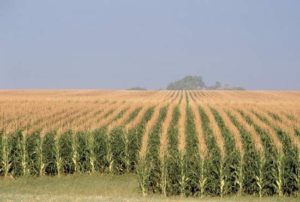 Eight of the nation’s leading experts in agricultural economics and biofuels lifecycle analysis are urging the D.C. Circuit Court to reject claims made by the Center for Biological Diversity (CBD) in its lawsuit challenging EPA’s 2023-2025 Renewable Fuel Standard volumes.
Eight of the nation’s leading experts in agricultural economics and biofuels lifecycle analysis are urging the D.C. Circuit Court to reject claims made by the Center for Biological Diversity (CBD) in its lawsuit challenging EPA’s 2023-2025 Renewable Fuel Standard volumes.
In its challenge to EPA’s so-called “RFS set rule,” CBD relied on debunked studies by University of Wisconsin researcher Tyler Lark, and others, to wrongly suggest the RFS has caused habitat loss and conversion of grasslands into cropland. In their detailed amicus brief submitted last week, eight scientists informed the court that the Lark studies and CBD’s claims are “divorced from scientific evidence and reality” and “based on outdated, flawed, and disproven research.” They pointed out that “there is simply no valid scientific evidence behind claims that RFS-driven demand for ethanol production leads to the conversion of grasslands not previously farmed.”
“Neither biofuel production nor the RFS has been scientifically linked to the conversion of ‘natural’ lands, such as native prairies, forests, and wetlands, to crop production,” the researchers said in the brief.
They also noted ethanol producers are on a pathway to net zero lifecycle emissions. “Members of the Renewable Fuels Association have announced a commitment to further reduce the carbon intensity of corn ethanol, aiming to achieve a 70-percent reduction compared to petroleum gasoline by 2030 and net neutral status by 2050,” according to the brief.
“As we pointed out last week, the walls are closing in around the Center for Biological Diversity, Tyler Lark, the National Wildlife Federation, and other anti-biofuel activists who perpetuate the ridiculous land use change myth,” said RFA President and CEO Geoff Cooper. “In his newest work, even Lark is now admitting that U.S. cropland continued to shrink as biofuels production expanded.”

